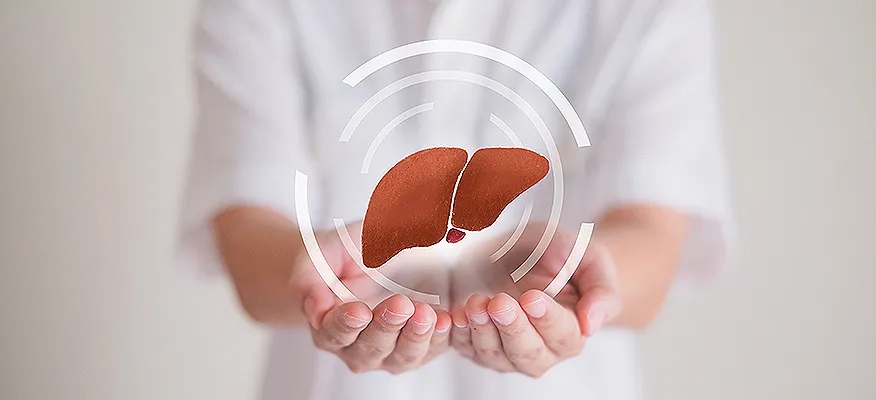The Ultimate Guide To Liver Health
- By Dr Sylvia Kama-Kieghe
- 19 Feb 2025

Key highlights or summary
- Liver health is essential for overall well-being.
- Normal liver function can be maintained through proper diet, lifestyle changes, and regular check-ups.
- Various foods and herbs can aid in improving liver health.
- Recognizing the symptoms of potential liver issues is necessary for early detection and treatment.
- Regular screening is important to monitor liver health.
- Seeking professional medical advice is crucial when experiencing persistent symptoms.
Rate our article
We'd love to know!
- 0
- 0
- 0
- 0
- Liver: Anatomy and Functions - Johns Hopkins Medicine
- Liver Disease - NIDDK
- Liver disease - Mayo Clinic
- Symptoms of liver disease - British Liver Trust
- 5 Ways to Be Kind to Your Liver - Johns Hopkins Medicine
- 13 Ways to a Healthy Liver - American Liver Foundation
- What to Expect: Liver Disease Prevention - Stanford Medicine
Related articles
See AllFrequently asked questions
Get the information you need.
For maintaining optimal liver health, it's best to avoid high-fat and processed foods that can lead to inflammation and damage to the liver. Limit your consumption of alcohol, as excessive drinking can cause significant harm to your liver function.
You can enhance your liver health by maintaining a balanced diet rich in fruits, vegetables, lean proteins, and whole grains. Foods good for liver health include garlic, beetroot juice, and leafy greens. Regular exercise and staying hydrated can also significantly improve liver health.
The superfoods for liver health include garlic, grapefruit, beetroot, green tea, and leafy greens. These foods provide essential nutrients that aid in the detoxification process and support overall liver function.
Liver health screening involves blood tests to measure levels of certain proteins and liver enzymes. Imaging tests like ultrasounds or CT scans can also check for signs of liver damage or disease.
Protecting your liver health involves maintaining a balanced diet, limiting alcohol consumption, and avoiding toxic substances. Regular exercise also helps in maintaining a healthy weight which is important for liver health.
There are several ways to take care of your liver health. These include eating a healthy diet filled with fruits, vegetables, and lean proteins; staying hydrated; getting regular exercise; avoiding excessive alcohol consumption; and getting regular check-ups to monitor your liver's function.
Yes, the human liver has a remarkable ability to regenerate itself which plays a crucial role in many liver diseases.
If you're at risk for liver disease due to factors like excessive alcohol use or obesity, consider getting a liver health screening annually. However, always consult your healthcare provider for personalized advice.
Early liver health symptoms can include fatigue, yellowing of the skin or eyes, dark urine, abdominal pain, swelling in legs and ankles, itchy skin, and unexplained weight loss.
Yes, some forms of liver damage can be reversed with a diet that improves liver health and lifestyle changes, especially if the damage is detected early.
Excessive alcohol consumption can cause significant harm to your liver function, leading to inflammation and scarring, which can ultimately result in irreversible damage if not addressed timely.
Yes, maintaining a healthy weight through a balanced diet and regular exercise can often reverse fatty liver disease.
Liver function tests, imaging tests such as ultrasound or CT scan, and liver biopsy are commonly used to diagnose liver problems.
Dehydration can lead to reduced blood flow to the liver which can impair its ability to detoxify the body and perform other crucial functions.
Yes, prolonged stress can lead to imbalances in the immune system and cause inflammation in the liver.
Bile aids in digestion, particularly in fat absorption. Additionally, it helps the human liver get rid of toxins and old red blood cells.
The liver helps metabolize fats and carbohydrates for energy. If your liver isn’t functioning properly, you might experience fatigue or lower energy levels.
Regular physical activity helps maintain a healthy weight and reduce fat in the liver, which is essential for those with fatty liver disease or those at risk for it.
Obesity can lead to non-alcoholic fatty liver disease and is a major risk factor for developing liver cancer. Regular exercise and maintaining a balanced diet are essential for liver health.
How was the experience with article?
We'd love to know!